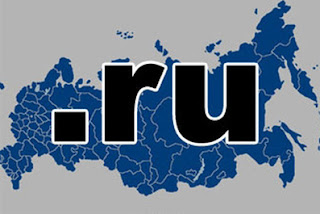It’s kind of like the world’s worst game of Whack-a-Mole. Every
time a destructive piece of Internet censorship legislation is smacked down,
another one pops up somewhere else. And with ACTA suffering epic defeat in the
European Parliament last Thursday, of course, it’s Russia’s turn to introduce
the next terrible idea.
 |
| Image courtesy of CNN |
This time, that idea comes as an amendment to a law signed
in January called "On protection
of children from information harmful to their health and development”
and it provides the government the power to censor pretty much anything it
wants online.
According to the Russian News agency Ria Novosti, the new
bill will create a blacklist of sites that contain pornography, drug
references, promote suicide, or – wait for it – contain other “extremist
ideas”. Conveniently, “extreme” is not defined in the bill’s language and could
potentially pertain to anything from legitimate national threats to everyone
that disagrees with newly inaugurated President Vladimir Putin.
Under the new amendment, Roskomnadzor, the communications
regulator,
would run the blacklist, but Russia’s intelligence services
would also be able to add content considered extremist (nope, no chance at
corruption there). Federal courts, which already have the power to blacklist
content, will also be allowed to add sites to the list. Once in place,
violators hosting blacklist-worthy material will be given 24 hours for removal.
After 24 hours, the website will be taken down and added to the blacklist.
And as if the censorship wasn’t bad enough, the amendment
also compels Russian ISPs to install new censorship equipment that is expected
to cost anywhere from $5 million to $10 billion dollars.
But this law is not entirely new. The Justice Ministry
already maintains a blacklist and has the power to shut down websites they say
violate laws. Currently, there are about 1,200 websites on the list, but the
new amendment would quickly grow that figure because blacklisted sites wouldn’t
even need to break a law to get shut down.
And even without the proposed expansion of blacklisting power,
we’ve already seen the ease with which lists like these can be abused. Compromat.ru,
a website focused on publishing corruption reports was forced to shutdown their
.ru domain last week and migrate to .net after Moscow city prosecutors ordered
their shutdown. Additionally, news site Moscow-post.ru was forced to move to
.com. Both sites were accused of publishing “unchecked information” and
blacklisted by order of the Putin administration.
The Russian Presidential Council for Human Rights, a watchdog
group set up by the Kremlin, has already come out in condemnation of the
amendments, and warned that the bill's language – specifically its vagueness
with regard to what can be considered blacklist-worthy – leaves it open for
abuse. The Council said the proposed measures would put financial burdens on
Internet providers and would negatively affect the Internet’s speed, stability
and security.
Although the bill has yet to be formally discussed in the
Duma, it already has support from all four major political factions and is
expected to be on the fast-track to passage.
Ironically, speaking on the original bill to which this
amendment would be made, then-President Medvedev spoke on the possibility of
abuse and the creation of an Internet blacklist and described online censorship
as “impossible and simply senseless.”


No comments:
Post a Comment